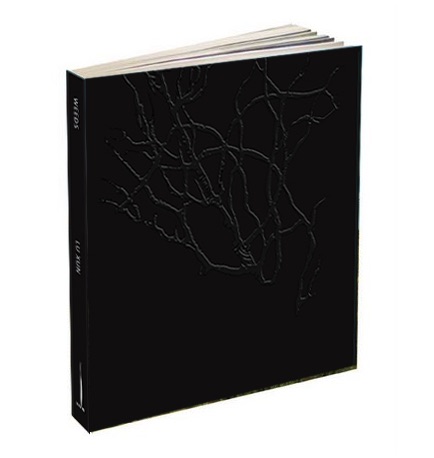Lu Xun’s 1927 collection of modernist experiments in prose poetry, Yecao《野草》has, until now, been available in English translation only as Wild Grass, a 1974 translation by Yang Xianyi and Gladys Yang originating with Beijing’s own Foreign Languages Press. Needless to say, that was quite a while ago and, in a number of senses, a world or two ago. Mao was still alive and kicking, the Cultural Revolution was still officially still underway, China had yet to become the factory to the world — and so on. Turner, author of a set of brilliantly cut and cutting poems, Not Moving (Broken Sleep Books), brings a tough-minded critical force and an ear for what he’s called the “spikiness” of Lu Xun’s idiosyncratic early modernist Chinese to the task of translation and thereby, I think, not only gives us a fresh look at one of 20th century literature’s most important writer’s strangest texts, but also new ways to think about how far we’ve come from not only the ’70s of the Yangs’ version but, more importantly, the 1920s of Lu Xun’s period of existential struggles with himself, Chinese culture, modernity, and the expressive limits of his time’s language. I suspect we might have more to learn from this book about where we are now, and how we got here and what we might do (or not do) about it than we might think at first glance.
It was a real pleasure to edit Weeds — the first of our fledgling press’s projects to find proper distribution (via Small Press Distribution), though not the last (a book of Andrea Lingenfelter’s translations of a set of Shanghai poet Wang Yin’s recent poetry and photography is up next). Matt was great to work with and was very patient with what became a very drawn-out process, and it was wonderful to see Monika visualize in her woodcuts and book design Matt’s dark, thorny, “refractory” (Forrest Gander) and “daring” (Yunte Huang) “accommodation for the pique, pout, and poetics of the wild and protean imagination of a Chinese master” (also Yunte Huang).
As Nick Admussen notes in his introduction, writing of Lu Xun, that Chinese “readers at the time encountered some of his writing, Weeds included, with bafflement and wildly varying interpretations,” adding that Matt’s “translation emphasizes that generative uncertainty.” He continues: “It cares more about what the collection could mean than what it must. In this way, the translation carries across the sense of the openness of the future that energized and terrified Chinese intellectuals in the early twentieth century.” I love this take in large part because I feel that it challenges the reader to make something of it, and that meeting that challenge promises real rewards. Finally, it was incredibly rewarding to work with one of NYU Shanghai’s first wave of graduates, Tan Zijian, now a graduate student in East Asian Studies at NYU in New York — his insights and assistance with cultural contexts and history were indispensable in creating the notes to the poems.
As we’ve put the book together, I’ve thought a lot about how these odd prose poems — which Lu Xun himself more or less dismissed as irrelevancies as he turned toward the serious matter of political criticism and organizing in at the close of the 1920s — might connect with readers today, as I suggest above. As Nick puts it at the close of his introduction: “The days of our age are changing: the book is pulled again into life after death. Who knows which strange, humble flower into which it will burst?” I’m not sure where to begin or end with such thoughts — Weeds emerges from a period intense turmoil and civilizational transformation, at a time when it was not at all apparent to anyone what direction China, or, for that matter, the post-World War I world. As we head into our own period of turmoil, one, which by the 2027 anniversary of Lu Xun’s work could see a world on fire in any number of ways, including civilizational breakdown on a scale approaching, and perhaps reaching, the global, I find Lu Xun’s grappling with hopelessness (which requires hope, but a hope winnowed of easy bromides and cheap illusions) and struggle to make writing mean something useful as received standards of meaning collapse — I find this text to be deeply useful. Lu Xun more or less disowned Weeds as he moved into the 1930s and a period of more direct political activism and organizing. And yet, he had to pass through the writing of this work to get beyond it, just as he arrived at this work via the writing of his best-known fiction and essays prior.
Lu Xun’s potent mix of modernist Western-inspired scathing, quasi-Nietzschean, critique and his own Buddhist and classical Chinese depth of knowledge and turns of mind, combined with a blend of leftist politics and focus on the nation that at times resonates with Orwell (as does his stubborn refusal to join, ultimately, any party or movement other than that of art and literature in the service of liberation) — it’s all of a different time, a different world, but then again, we arise from and fall back into the same tumult, and I think there may be much more to this rich text than I’ve yet gleaned, ever after having read Matt’s translation dozens of times and after having worked slowly — very slowly — and painstakingly through the Chinese a couple of times as well. It’s a pleasure to finally have the book in hand, and to have time to think further about how 野草 may speak to us now.
